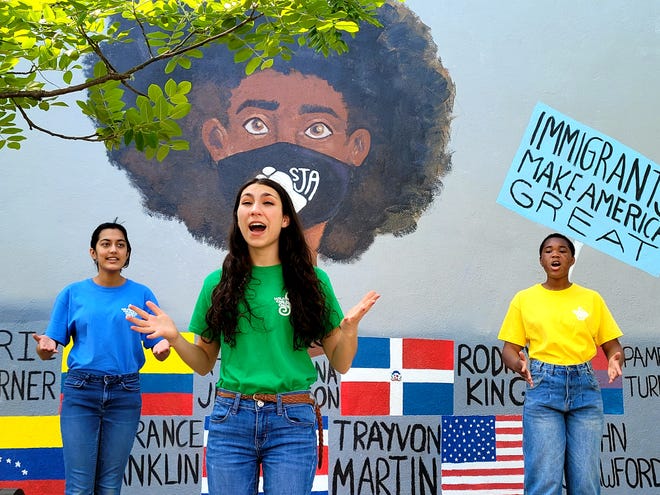Editor’s note: Open Call is a weekly column in which we ask arts and cultural leaders to share their perspectives on emerging from the COVID-19 crisis and welcoming back audiences.
It’s a new year and I just started a new job. I’m excited to introduce myself to you as the recently appointed director of the Delaware Division of the Arts.
The Division of the Arts is the state’s arts agency, and we are committed to supporting the arts and cultivating creativity to enhance the quality of life in Delaware.
I’m taking over for Paul Weagraff, who retired from the Division this past summer after decades of service to Delaware’s arts community. To say that I have big shoes to fill is an understatement, so I’ve decided to cobble a new pair.
Many know me from my work as the executive director of the Delaware Arts Alliance (DAA). Since 2018, I’d been leading the organization and working closely with cultural, civic and community leaders to develop statewide advocacy strategies to advance arts and culture.
Arts rising to challenges: In creating this space, we witnessed huge impact arts played in our community
But what some people may not know about me is that I’m not only an arts advocate and administrator, I am also a maker, a creator, an artist. And while I won’t literally craft a new pair of shoes for my new role, I will work with the Division’s passionate staff to design and build a new operational plan that addresses the most pressing needs of the sector today, particularly cultural equity and innovation.

My connection to the arts is deeply personal. My grandparents, who helped raise me, met at art school. My grandmother was an artist for Hallmark and my grandfather started his own design-build exhibit company that is still family owned.
I grew up in my grandfather’s shop, cutting out airplanes on the band saw as soon as I was old enough to reach it while standing on a stool. To this day, I design and make things as a form of creative self-expression and to reduce my stress and promote my mental health.
My grandparents taught me to draw, paint, carve and knit. I remember that learning to paint was particularly tough for me. I’d have a vision of how I wanted something to look but was often stymied by the fear of making a mistake.
Finally, one day my grandpa told me that there are no mistakes in art, only opportunities.
Art and culture are resilient and transformative because every mistake, obstacle, parameter and challenge is an opportunity for creative innovation. That has never been more apparent than in the last 22 months.
More Open Call:Growing minds, building a beautiful future at Longwood Gardens
The pandemic shut the arts down. Arts organizations and artists have had to invent new ways to engage audiences and deliver their art forms.
It is apparent that COVID is something we’ll have to learn to live with for some time. Fortunately, many in the field have taken the challenges posed by the pandemic as an opportunity to transform. They have been reevaluating who they are at their core. They are taking a critical look at who they are serving and how they are bringing art and culture to communities.
For most, cultural equity and access are at the heart of these transformations. The future viability of a robust arts and culture industry is hinged on cultural equity — ensuring that all people are represented in the development of arts policy; the support of creative workers; the nurturing of accessible, thriving venues for expression, and the fair distribution of programmatic, financial and informational resources.
We must do this work continuously and hold ourselves and each other accountable. Because every human deserves equitable access to a full, diverse, and vibrant creative life.
The Division of the Arts understands that Inclusion, Diversity, Equity, Access (IDEA) are the core of what will bring our new strategic plan to life. We will work hard to operationalize these concepts and bake them into our organizational culture. And we will help others in the field do this, too.
More Open Call: New Winterthur CEO invites you to give the gift of Delaware this season
The Division is piloting a new program with five organizations throughout the state: The Arts Equity and Innovation Incubator. It provides technical assistance and resources to organizations to develop custom strategies for sustainable practices and programming that integrate the principles of IDEA into all aspects of their operations.

We’ve also created the new role of Community Engagement Officer, recently filled by Leeann Wallet. Leeann will research and address the issues of IDEA in our granting allocations, services and processes. She will provide greater capacity to develop programs and services that reach all Delawareans, particularly BIPOC populations not currently being served effectively.
As we look forward, we know that together we can build a more perfect Delaware through the arts.
Jessica Ball is director of the Delaware Division of the Arts.